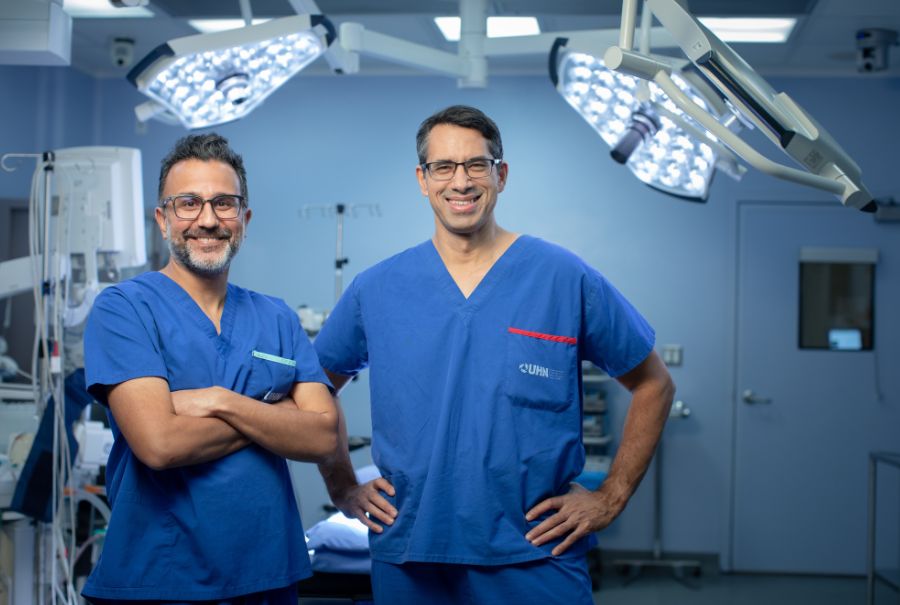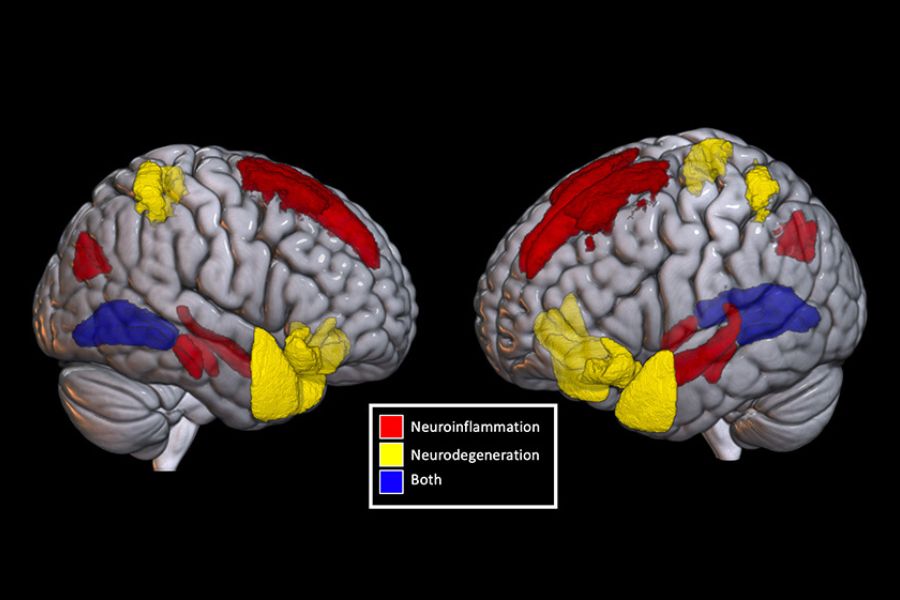Dr. Alfonso Fasano, (L), and fellow Dr. Wilson Fung consult with a patient remotely to adjust their neuromodulation device. (Photo: UHN)
University Health Network’s Krembil Brain Institute at Toronto Western Hospital (TWH) last month became the first site in Canada to provide remote neuromodulation patient-care technology for patients with chronic pain or movement disorders.
The availability of this technology will not only help increase access to treatment for conditions such as chronic pain, Parkinson’s disease and essential tremor, but also improve the quality of life of patients currently receiving treatment who have difficult accessing their health care provider due to the distance between the hospital and the patient’s residence, or other travel-related challenges.
The remote technology, supported by Abbott’s Neurosphere Virtual Clinic, lets patients receive care anywhere by connecting with their health care provider via a secure in-app video chat. An integrated remote programming feature allows the provider to make changes to the patient’s neuromodulation device – a device that alters nerve activity – adjusting the stimulation up or down as needed by the patient; all without them leaving their home.
As a world-renowned centre for the treatment of movement disorders and pain, Krembil Brain Institute already has many patients from across the province and even across the country travelling to TWH for treatment which can be both costly and tiring.
“Alternatives to in-person programming helps expand access to patients who may delay or forego care for pain or a movement disorder, particularly those who face a travel burden,” says Dr. Alfonso Fasano, a neurologist with Krembil Brain Institute. “Fortunately, innovative virtual health care options are changing the treatment landscape, essentially extending care beyond clinic walls.
“Remote programming is an important new option that allows patients to communicate with their physicians virtually to ensure proper device settings and functionality and, ultimately, giving patients the ability to manage their therapy in a way that fits their personal needs.”
A team will also be researching the efficacy of combining consultations through the Ontario Telehealth Network (OTN) with remote programming, which were previously done separately. This builds on research done in 2017 that evaluated the benefits of using OTN for pre and post surgery followup care for patients seeking deep brain stimulation (DBS).
The study confirmed the feasibility and usefulness of remote check-ins with patients which significantly reduced the burden and costs of travelling and set the stage for an effective pivot to virtual care after the COVID-19 pandemic was declared.


